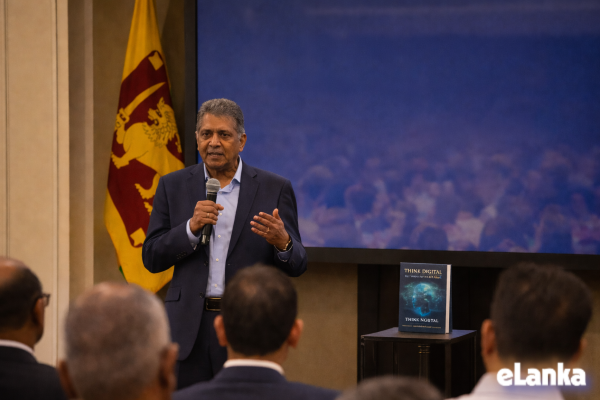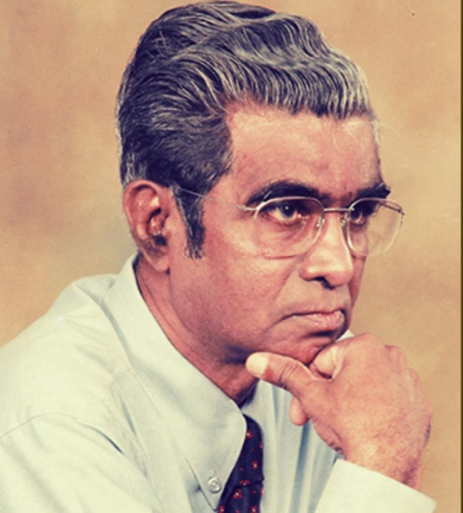Are You Aware About Digital Dementia? – By Nisal Rukshan

Digitalization is now all around us, with different usages. Generally, it shows enhanced technology on the fingertips of the global village of connectivity. Instead of old-age manual physical exposures towards commitments, now we are simply addicted to digital devices like videos, documents, games, applications, opinion-seeking, etc.
So, most of the time, due to this addiction, we are reluctant to see the negative impacts of the usage of these digitized devices. Why? Simply, such devices have made everything easy and simple under the systems. If everything can be done so easily, especially when everything is in there, on the internet, then why should we need to work hard? Yes, global wisdom is on our fingertips, in the name of digitalization.
Today thought of put an effort to open your eyes towards the things that are interconnected with digital devices which make a high impact on human lives. That is Digital Dementia.
What is digital dementia?
In simple terms, digital dementia is the process of the human brain decreasing its cognitive functions due to overuse of electronic digital devices like computers, smartphones, tablet PCs, and game players generally, on the internet.
How was this digital dementia uncovered?
In 2012, a German neuroscientist and psychiatrist, Dr. Manfred Spitzer, wrote a book, named “Digital Dementia: What We and Our Children Are Doing to Our Minds.”
His book explains:
During the time of use of computers by individuals, their mental activity is outsourcing. Furthermore, he explains that kids tend to give more attention for playing computer games. Dr. Manfred’s study illustrates that the lowest age limit, which is appropriate to use media is 15 – 18.
What is happening?
The impact of overuse of digital devices results unbalanced brain development. Most of the times, it develops the left brain of those individuals, but the right brain remains undeveloped, causing unbalanced development of the brain,
The left side of the human brain is in charge of coherent, linear, exploratory skills, and the right brain is for intuitive, creative, and sensitive acts. When unused the right side, there can be discrepancies in the capability to distillate, short-term memory, and emotional disturbances. Then individuals become highly reliant on technology instead of trying to recall information organically from their memory and brain.
What are the signs that can be observed in digital dementia?
Following signs can be identified from the below mentioned categories of personnel;
TEENAGERS/ADULTS
- Slouching posture
- Developmental delays
- Short-term memory losses
- Social isolation
- Fewer movements
- Anxiety
- Stress
- Anger
- Balance-related disorders
KIDS
- Front-head-bent posture
- Delays in development
- Social withdrawal
- Less motivation
- Forgetfulness
- Angry without a reason
- Less attention or no attention
- Movement patterns seem uncoordinated
Social situations like
What can we do to manage it or to help someone –
Avoid simple tips.
Showing videos to feed an infant easily or to lull a crying baby are very common things in day-to-day lives. Such acts seem very simple to anyone, but the hidden danger veiled under that simplicity is conditioning the kids to the electronic devices, which long-term paves the way to digital dementia. Hence, rather than getting short-term benefits, the parents and elders must avoid such silly acts which can causes long-term damage.
Use your cognition.
In some instances, like calculating simple numbers, we are using calculators instead of counting them using our brain. Sometimes, when we interact with social matters, we tend to seek opinions only from the internet without using our cognitions to overcome such issues. Result of this will be hinder our use of brain and make us addicted to the devices, enhancing the probability of digital dementia. Therefore, we need to use our brains and their uniqueness without always being bound to electronic devices.
Have screen time limitations.
According to the American Academy of Child and Adolescent Psychiatry, the following limitations were given for screen timings from toddler to adult; simply, if you need to check your timings at Facebook, go to privacy and account settings – then you will see an option of your Facebook time. Then click and get your data.
 Digital Dementia
Digital Dementia
Babies up to 18 months
Zero screen time, except for video chats with family.
18 months to 2 years
Less than 1 hour per day; limit the media to quality educational programs that you watch together with your child.
Age 2 to 5 years
Less than 1 hour per weekday and less than 3 hours per weekend day, Limit media to educational, interactive programs you can watch or play together.
Age 6 to teenage
Aim for less than 2 hours of recreational screen time per weekday. Maintain healthy limits on screen time and content. Focus on making time for other important activities: 1-2 hours of physical activity, a full night’s sleep, meals as a family, and screen-free relaxation time.
Adults
Limit recreational screen time to 2-4 hours a day. Keep work-related screen time around 8 hours a day, if you can. Take frequent screen breaks and set up screen-free times and zones. Make time for physical activity.
Have regular physical exercise.
This will create a better chance in a monotonous, isolated life with devices. especially playing games with others will enhance social interactions too. This is better for adults and kids both.
Do some brain exercises.
Learning a new language, playing chess or board games, working on crosswords, writing or reading something or doing some innovative exercises can boost your brain power.
Have a family screen curfew.
This will reduce your and your family’s screening time, and then it can be used for other appropriate family activities or individual tasks without the use of digital internet-mounted devices.
Re-work on your missed hobbies.
Learn from non-digitalized sources, like books, newspapers, etc.
Monitor your own and kids’ screen timings.
Try to be close to nature.
Finally,
In modern days, we are experiencing and hearing different kinds of bad news about these digital dementia effects, which results loss of life and suicide. Therefore, always pay attention to your behaviour, family, friends, and outsiders from this emerging silent hazard.
If you notice such signs and behaviours, please meet with a qualified mental health care professional immediately, to cure or manage them. Help each other to overcome circumstances during hard times to create a better world.
Nisal Rukshan, MHRM, BA (Defence), BSc (Hons.) Counselling Psychology, DCPsy
Email: rukshan4slsr@gmail.com




















